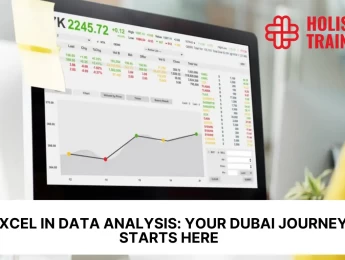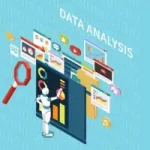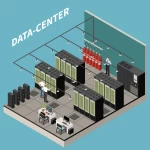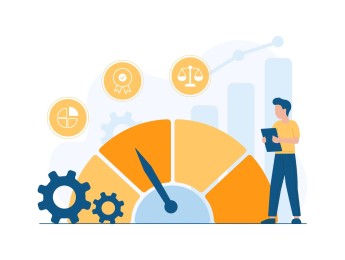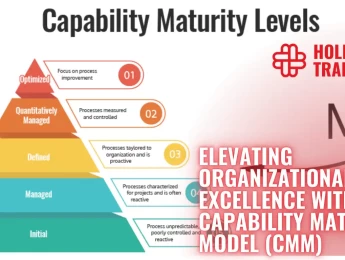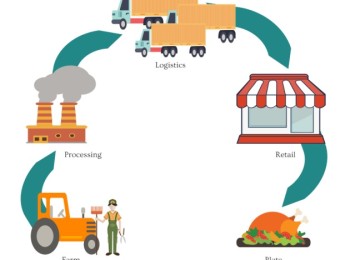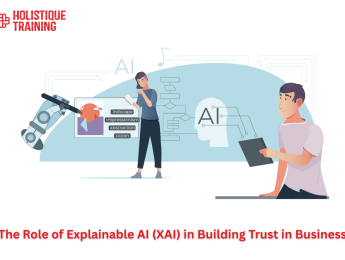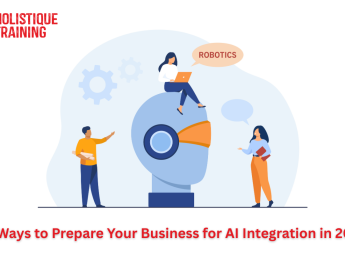- Table of Contents
- What is a Data Analyst Course and Why is it Essential?
- Why Choose Dubai for Your Data Analyst Course?
- What Core Skills Will You Learn in a Data Analyst Course?
- How to Choose the Right Data Analyst Course in Dubai?
- What Are the Future Trends in Data Analysis and How Will They Affect Your Career?
Introduction
In today's data-driven world, a Data Analyst course is essential for anyone looking to harness the power of data to make informed business decisions. This structured educational program equips individuals with skills in statistical analysis, data cleaning, data visualization, and the use of key software tools like Excel, SQL, Python, R, and Tableau. By mastering these techniques, participants can effectively analyze and interpret complex data sets, enabling businesses to identify trends, optimize operations, and enhance strategic planning. Ultimately, data analysis drives improved decision-making, operational efficiency, and competitive advantage, making a Data Analyst course a crucial investment for career growth in any industry.
What is a Data Analyst Course and Why is it Essential?
Overview of Data Analysis
A Data Analyst course is a structured educational program designed to equip individuals with the skills and knowledge required to analyze, interpret, and visualize data to inform business decisions. The course typically covers a range of topics including statistical analysis, data cleaning, data visualization, and the use of specific software tools like Excel, SQL, Python, R, and Tableau.
Importance of Data Analysis in Business
Data analysis is crucial in the business world because it enables organizations to make data-driven decisions. By understanding and interpreting complex data sets, businesses can identify trends, optimize operations, and enhance strategic planning. This process helps in reducing uncertainties and allows for better forecasting and decision-making.
Key Benefits of Data Analysis:
- Improved Decision-Making: By analyzing data, businesses can make informed decisions based on factual information rather than intuition or guesswork.
- Operational Efficiency: Data analysis can identify inefficiencies and bottlenecks in processes, leading to streamlined operations and cost savings.
- Enhanced Customer Insights: Through data analysis, companies can gain deeper insights into customer behavior, preferences, and trends, which can inform marketing strategies and improve customer satisfaction.
- Competitive Advantage: Companies that effectively utilize data analysis can gain a competitive edge by identifying market opportunities and trends ahead of their competitors.
- Risk Management: Data analysis helps in identifying potential risks and implementing strategies to mitigate them.
Overall, a Data Analyst course provides the foundational skills necessary to harness the power of data, making it an essential component for anyone looking to thrive in today's data-driven business environment.
Why Choose Dubai for Your Data Analyst Course?
Strategic Business Hub
Dubai is a major global business hub, known for its strategic location that bridges the East and the West. The city hosts numerous multinational corporations, regional headquarters, and a dynamic start-up ecosystem. This makes Dubai an ideal place for networking and finding career opportunities in data analysis and related fields.
Educational Excellence
Dubai boasts a wide array of prestigious educational institutions and training centers offering high-quality data analyst courses. These institutions often collaborate with global universities and industry leaders to provide up-to-date curricula that reflect the latest trends and technologies in data analysis.
Networking Opportunities
Dubai's cosmopolitan environment attracts professionals from all over the world. This diversity creates a rich networking environment, enabling students to build connections with industry experts, potential employers, and peers from different backgrounds. These connections can be invaluable for career growth and development.
Access to Cutting-Edge Technologies
The city's emphasis on innovation and technology ensures that students have access to the latest tools and software used in data analysis. Many courses in Dubai integrate hands-on training with advanced technologies, preparing students for the practical demands of the industry.
Thriving Job Market
Dubai's economy is diverse and robust, with significant investments in sectors such as finance, technology, healthcare, and logistics—all of which rely heavily on data analysis. Graduates of data analyst courses in Dubai can find numerous job opportunities in these thriving industries.
Quality of Life
Dubai offers a high standard of living, with modern infrastructure, world-class amenities, and a safe environment. The city's vibrant culture, rich in both traditional and contemporary influences, provides an enriching experience for international students.
Professional Development Opportunities
Dubai hosts numerous industry conferences, workshops, and seminars focused on data science, analytics, and technology. These events provide additional learning opportunities outside the classroom and keep students updated on the latest industry trends and best practices.
In summary, choosing Dubai for your data analyst course offers a unique combination of educational excellence, strategic networking opportunities, access to cutting-edge technologies, a thriving job market, and an enriching cultural experience. This makes it an attractive destination for aspiring data analysts looking to advance their careers.
What Core Skills Will You Learn in a Data Analyst Course?
Statistical Analysis
- Descriptive Statistics: Understanding measures of central tendency (mean, median, mode), dispersion (range, variance, standard deviation), and data distribution.
- Inferential Statistics: Learning hypothesis testing, confidence intervals, p-values, t-tests, chi-square tests, and ANOVA to make predictions and informed decisions based on data samples.
Data Visualization
- Principles of Data Visualization: Learning the best practices for creating clear, effective, and visually appealing data visualizations.
- Visualization Tools: Gaining proficiency in tools like Tableau, Power BI, and Matplotlib (Python) to create charts, graphs, and dashboards.
- Storytelling with Data: Understanding how to craft compelling narratives using visual data to communicate insights effectively to stakeholders.
Data Cleaning and Preparation
- Data Quality Assessment: Identifying and addressing issues such as missing data, duplicates, and inconsistencies.
- Data Transformation: Techniques for normalizing, aggregating, and transforming data to make it suitable for analysis.
- ETL Processes: Learning Extract, Transform, Load (ETL) processes for preparing large datasets for analysis.
Predictive Analytics
- Regression Analysis: Understanding linear and logistic regression to predict continuous and categorical outcomes.
- Classification Techniques: Learning methods such as decision trees, random forests, and support vector machines for categorizing data.
- Time Series Analysis: Techniques for analyzing time-dependent data to forecast future trends.
Database Management
- SQL (Structured Query Language): Gaining proficiency in SQL for querying databases, joining tables, and performing data manipulation.
- Database Design: Understanding relational database concepts and design principles to structure data efficiently.
Programming Skills
- Python and R: Learning programming languages widely used in data analysis for data manipulation, statistical analysis, and visualization.
- Libraries and Frameworks: Using popular libraries such as Pandas, NumPy, SciPy, and scikit-learn (for Python) and dplyr, ggplot2, and caret (for R) to facilitate data analysis tasks.
Advanced Data Analysis Techniques
- Machine Learning Algorithms: Introduction to supervised and unsupervised learning algorithms, including clustering, neural networks, and ensemble methods.
- Big Data Technologies: Familiarity with big data tools and platforms like Hadoop, Spark, and NoSQL databases for handling large-scale data analysis.
Soft Skills
- Critical Thinking: Developing the ability to analyze problems, interpret data, and make reasoned conclusions.
- Communication: Enhancing skills in presenting data insights clearly and persuasively to non-technical stakeholders.
- Problem-Solving: Learning to approach complex business problems with a data-driven mindset to find effective solutions.
Table 1: Core Skills in a Data Analyst Course
Core Skills | Description |
Statistical Analysis | - Descriptive Statistics: Understanding measures of central tendency, dispersion, and data distribution. <br>- Inferential Statistics: Learning hypothesis testing, confidence intervals, p-values, and more. |
Data Visualization | - Principles of Data Visualization: Learning best practices for creating effective visualizations. <br>- Visualization Tools: Gaining proficiency in tools like Tableau, Power BI, and Matplotlib. <br>- Storytelling with Data: Crafting compelling narratives using visual data. |
Data Cleaning and Preparation | - Data Quality Assessment: Identifying and addressing issues such as missing data and inconsistencies. <br>- Data Transformation: Techniques for normalizing and aggregating data. <br>- ETL Processes: Learning Extract, Transform, Load processes for data preparation. |
Predictive Analytics | - Regression Analysis: Understanding linear and logistic regression for predicting outcomes. <br>- Classification Techniques: Learning decision trees, random forests, and support vector machines. <br>- Time Series Analysis: Techniques for analyzing time-dependent data. |
Database Management | - SQL: Gaining proficiency in querying databases and performing data manipulation. <br>- Database Design: Understanding relational database concepts and design principles. |
Programming Skills | - Python and R: Learning programming languages for data manipulation and statistical analysis. <br>- Libraries and Frameworks: Using popular libraries like Pandas, NumPy, and scikit-learn. |
Advanced Data Analysis | - Machine Learning Algorithms: Introduction to supervised and unsupervised learning algorithms. <br>- Big Data Technologies: Familiarity with tools like Hadoop, Spark, and NoSQL databases. |
Soft Skills | - Critical Thinking: Developing the ability to analyze problems and interpret data. <br>- Communication: Enhancing skills in presenting data insights to stakeholders. <br>- Problem-Solving: Approaching complex problems with a data-driven mindset. |
By mastering these core skills in a data analyst course, students will be well-equipped to analyze complex data sets, draw meaningful insights, and contribute significantly to data-driven decision-making processes in various business environments.
How to Choose the Right Data Analyst Course in Dubai?
Accreditation and Certification
- Accreditation: Ensure the course is accredited by a recognized educational body or professional organization. Accredited courses meet established standards of quality and are widely recognized by employers.
- Certification: Look for courses that offer certification upon completion. Certifications from reputable institutions or professional organizations can significantly enhance your resume and career prospects.
Faculty Expertise
- Qualified Instructors: Investigate the qualifications and experience of the faculty members. Instructors with industry experience and academic credentials provide valuable insights and practical knowledge.
- Industry Connections: Faculty with strong industry connections can offer networking opportunities and insights into current industry trends and practices.
Curriculum and Course Content
- Comprehensive Curriculum: The course should cover essential topics such as statistical analysis, data visualization, data cleaning, predictive analytics, SQL, and relevant programming languages (Python, R).
- Updated Content: Ensure the curriculum is up-to-date with the latest tools, technologies, and methodologies in data analysis. This includes exposure to big data technologies, machine learning, and advanced analytics techniques.
- Hands-on Projects: Practical, hands-on projects and case studies are crucial for applying theoretical knowledge to real-world scenarios. Check if the course includes capstone projects or industry-based assignments.
Student Support Services
- Career Services: Look for courses that offer career support services, including job placement assistance, resume building, interview preparation, and networking opportunities with industry professionals.
- Academic Support: Ensure the course provides adequate academic support, such as tutoring, mentoring, and access to learning resources.
Learning Format and Flexibility
- Format: Choose a learning format that suits your schedule and learning preferences. Options may include full-time, part-time, online, or hybrid courses.
- Flexibility: If you have other commitments, look for courses that offer flexible scheduling, recorded lectures, and the ability to learn at your own pace.
Reputation and Reviews
- Institution Reputation: Research the reputation of the institution offering the course. Well-established institutions with a strong track record in data analysis education are generally more reliable.
- Student Reviews and Testimonials: Read reviews and testimonials from former students to gauge their satisfaction with the course. Positive feedback on course content, instructor quality, and career outcomes can be a good indicator of the course’s effectiveness.
Cost and Financial Aid
- Tuition Fees: Compare the costs of different courses to find one that fits your budget. Consider the value offered in terms of curriculum, faculty, and support services.
- Financial Aid: Check if the institution offers financial aid, scholarships, or payment plans to help manage the cost of the course.
Alumni Network and Success Stories
- Alumni Network: A strong alumni network can provide valuable networking opportunities and insights into the job market. Institutions with active alumni communities often offer better support and resources for career advancement.
- Success Stories: Look for success stories and case studies of alumni who have successfully transitioned into data analyst roles. This can provide an indication of the course’s effectiveness in preparing students for the job market.
By carefully evaluating these factors, you can choose a data analyst course in Dubai that aligns with your career goals, learning preferences, and financial situation, ensuring a rewarding and effective educational experience.
What Are the Future Trends in Data Analysis and How Will They Affect Your Career?
Emerging Technologies
- Artificial Intelligence (AI) and Machine Learning (ML): AI and ML are transforming data analysis by enabling more sophisticated predictive models and automation of data processing tasks. Professionals skilled in these technologies will be in high demand.
- Big Data Analytics: As data volumes continue to grow, expertise in big data technologies like Hadoop, Spark, and NoSQL databases will be crucial. These tools help manage and analyze vast datasets efficiently.
- Edge Computing: This involves processing data closer to its source (e.g., IoT devices) to reduce latency and bandwidth use. Data analysts will need to understand how to work with edge computing frameworks.
Advanced Analytics Techniques
- Predictive and Prescriptive Analytics: Moving beyond descriptive analytics, there is a growing focus on predictive (forecasting future trends) and prescriptive analytics (recommending actions). Skills in these areas will enhance decision-making capabilities.
- Natural Language Processing (NLP): NLP is increasingly used to analyze text data, enabling sentiment analysis, automated summarization, and more. Data analysts with NLP skills can leverage unstructured data sources.
Data Privacy and Ethics
- Data Governance: With increasing regulatory requirements (e.g., GDPR, CCPA), understanding data governance, privacy, and compliance is essential. Data analysts must ensure data integrity and ethical use of data.
- Ethical AI and Bias Mitigation: As AI and ML models are deployed, addressing ethical concerns and biases in data is critical. Analysts must be equipped to build fair and unbiased models.
Real-time Data Analysis
- Streaming Analytics: The ability to analyze data in real-time is becoming more important, particularly for industries like finance, healthcare, and e-commerce. Familiarity with tools like Apache Kafka and real-time analytics platforms will be beneficial.
Data Visualization and Storytelling
- Enhanced Visualization Tools: The demand for interactive and dynamic data visualizations is growing. Proficiency in advanced visualization tools and techniques will be key to communicating insights effectively.
- Data Storytelling: The ability to craft compelling narratives from data will remain a valuable skill. Analysts who can combine technical expertise with strong storytelling abilities will be highly sought after.
Automation and Augmented Analytics
- Automated Machine Learning (AutoML): AutoML tools are simplifying the process of building ML models. Analysts will need to understand how to leverage these tools to streamline workflows and increase productivity.
- Augmented Analytics: This involves using AI to automate data preparation, insight generation, and explanation. It helps analysts focus on higher-value tasks and derive deeper insights from data.
Domain-specific Knowledge
- Industry-specific Analytics: As data analytics becomes more specialized, domain knowledge in areas like healthcare, finance, retail, and manufacturing will be advantageous. Analysts with industry-specific expertise will be able to deliver more relevant and actionable insights.
- Integration of Data Science with Business Strategy: Understanding how data science integrates with overall business strategy will be crucial. Analysts who can bridge the gap between technical and business teams will be in high demand.
Soft Skills and Continuous Learning
- Communication and Collaboration: As data analytics becomes more integral to business operations, the ability to communicate findings effectively and collaborate with cross-functional teams is essential.
- Continuous Learning: The field of data analysis is rapidly evolving. Staying updated with the latest tools, techniques, and trends through continuous learning and professional development is vital for career growth.
How These Trends Will Affect Your Career..
- Increased Demand for Skills: As new technologies and techniques emerge, there will be a higher demand for skilled data analysts. Staying updated with these trends will enhance your employability.
- Higher Salary Potential: Advanced skills in AI, ML, big data, and real-time analytics can command higher salaries due to their impact on business decision-making and operations.
- Diverse Career Opportunities: With the expansion of data analysis into various industries, career opportunities will become more diverse. Analysts can find roles in finance, healthcare, technology, retail, and more.
- Need for Lifelong Learning: Continuous learning and adaptation will be crucial. Embracing a mindset of lifelong learning will help you stay competitive and relevant in the field.
- Increased Emphasis on Ethics: Understanding and addressing ethical considerations in data analysis will become more important. Analysts who prioritize ethical data use will be valued by employers and society.
By keeping abreast of these trends and continuously upgrading your skills, you can position yourself for a successful and fulfilling career in data analysis.
Conclusion
In conclusion, a Data Analyst course provides individuals with the foundational skills necessary to navigate the increasingly complex landscape of data analysis. As businesses continue to rely on data to drive decision-making processes, the demand for skilled data analysts is on the rise. By completing a Data Analyst course, individuals not only gain expertise in statistical analysis, data visualization, and database management but also position themselves for diverse career opportunities across industries. With the knowledge and practical experience gained from such a course, graduates are well-equipped to thrive in the dynamic and data-driven business environment of today and tomorrow.


